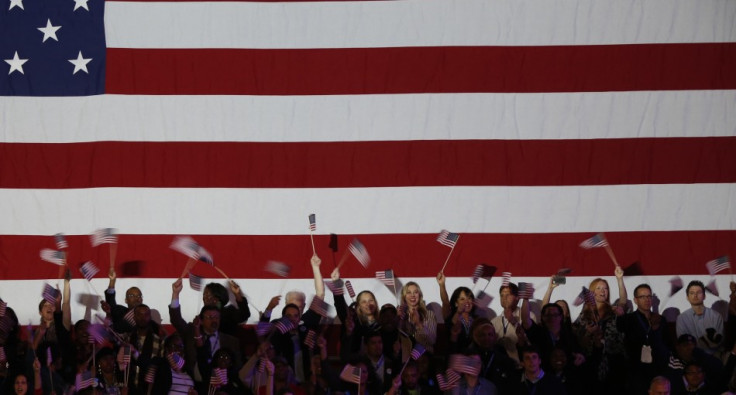Obama Election Win: What it Means for Cyber Warfare
Three experts give their opinion on what four more years of Barack Obama will mean for cyber-security and the potential of an all-out cyber war.

Barack Obama stormed to victory against Mitt Romney in the early hours of this morning.
While health care, religion and employment numbers may have been at the top of the agenda for most US citizens, onlookers in the Middle East, China and Russia will have had completely different reasons for wanting to know who would be in charge for the next four years.
When Obama took over from George W. Bush in the White House four years ago, as well as inheriting a struggling economy, he inherited a secret program called Olympic Games - first uncvoered by the New York Times' David Sagner last June.
The program was a joint one between the US and Israel, with the countries focusing their efforts on creating cyber-weapons to attack their enemies, virtually.
The program was initiated under George W. Bush, but in his first months in the Oval Office, Obama decided to accelerate the program, and increased the cyber attacks on one of the USA's main enemies - Iran.
Stuxnet
Using a computer virus that would become known as Stuxnet, Obama order increased attacks, with the cyber weapon, which was specifically created to target the Natanz nuclear facility in Iran, and which led to centrifuges at the facility spinning out of control and exploding.
Stuxnet was never meant to come to light and was never meant to infect anything other than the systems at Natanz. But in 2010 it did, and like all good computer viruses, it spread quickly around the world.
The US government has never officially admitted it was behind the cyber-weapon, and neither did it admit that it was behind one of the most complex computer viruses ever discovered, Flame, which was found to be infecting computer systems in the Middle East earlier this year.
Obama has overseen a rapid and aggressive use of cyber weapons to spy on, and attack, the US's enemies, which may leave the country open to retaliation attacks.
With four more years secured, what is in store for the USA in terms of cyber-security, cyber-espionage and a potential cyber-war?
We asked three security experts for their take on Obama's re-election
Seán Sullivan, security advisor at F-Secure (and American living in Finland)
"The Obama administration has stressed a serious need for cyber-security legislation several times in recent months. The need for confidential data exchanges is so great that the administration has suggested it will take action via an executive order if necessary.
"So now that President Obama has been re-elected, I think it is very likely that we will see renewed efforts to pass cyber-security bills through Congress. If the Republican controlled House blocks the administration's efforts - we'll still see some kind of action via executive order.
"Such executive action could possibly come very soon, between now and the start of the next Congress (during the lame duck session).
"Much of the focus on cyber-security data exchanges is related to concerns of targeted attacks and Chinese espionage. With such efforts being focused on "defensive" cyber-security - I think it is also safe to predict that the Obama administration will continue its course of offensive cyber-attack capabilities.
"Cyber-espionage is likely to escalate (at the very least until the question of Iran and its nuclear program is settled).
"So in terms of cyber-war - I'd say the ball is in Israel's court. Benjamin Netanyahu has been a very vocal advocate of kinetic action against Iran. I predict that the US still favours less kinetic actions."
Rik Ferguson, director of security research at Trend Micro
Ferguson believes that whether it was Obama or Romney, the outcome for the countries cyber security over the next four years would be pretty similar:
"To be honest it's pretty hard to see the cracks between the two former contenders when it comes to cyber security. Obama has a history of making commitments both in terms of policy and budget to cyber security preparedness.
"This, along with the hawkish stance of Leon Panetta on potential changes to rules of cyber engagement, appears to represent a political direction that is set to continue. Obama is also an advocate of net neutrality, in contrast to his erstwhile opponent, and has played some role in opposing SOPA-like legislation.
In the end though, Ferguson echoes Obama's fans' chants of "Four more years":
"So how will cyber-security fare? High on the agenda, business as usual."
Rob Rachwald, director of security strategy at Imperva
Rachwald points out that while cyber-attacks have escalated recently, Obama has failed to face up to those responsible:
"Cyber espionage rose dramatically in the past few years. Obama's unwillingness to challenge on China and other key actors was unfortunate."
He adds that Obama has failed to put in place sufficient protection and the next four years won't see much change according to Rachwald:
"When foreign entities make a priority to steal Western intellectual property, it is the natural role of government to put in place defences. Under Obama, this has not happened and doesn't seem to be a priority."
© Copyright IBTimes 2025. All rights reserved.





















